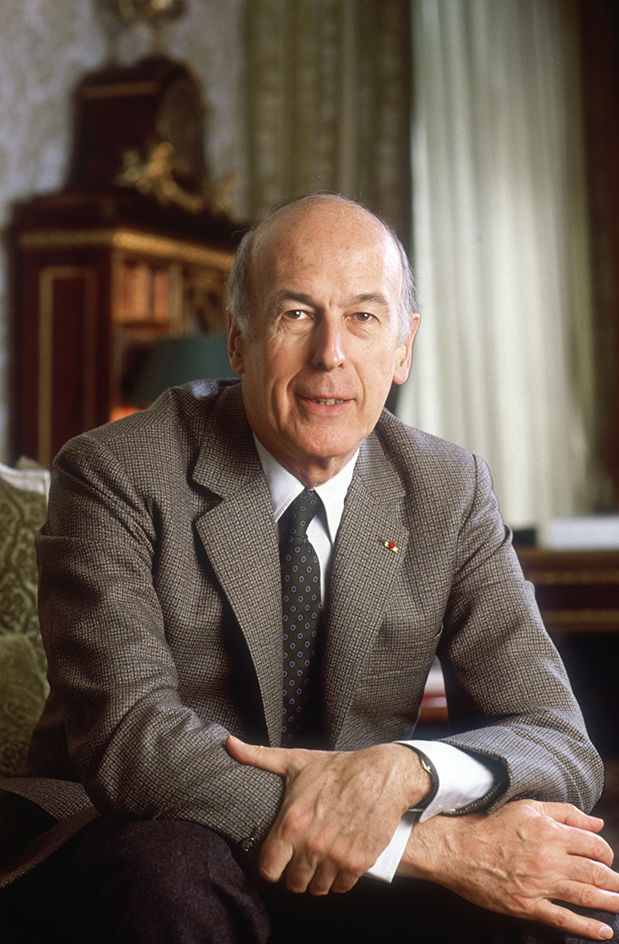Giscard d’Estaing, << zhee SKAHR dehs TANG, >> Valery (1926-2020), served as president of France from 1974 until 1981. During his presidency, Giscard, as he was usually called, sought to modernize French society. He accomplished a number of economic and social reforms.

As president, Giscard strengthened France’s civilian nuclear program, expanded its network of high-speed trains (called trains à grande vitesse, or TGV), and helped build up the European space industry. Giscard also helped bring national attention to women’s issues. He appointed several women to high-level political offices and reformed working conditions for women throughout the country. Giscard’s administration lowered the voting age from 21 to 18 and broke up the French government’s monopoly in radio and television. Giscard also played a major role in establishing a foundation for the European monetary system.
Valéry Giscard d’Estaing was born of French parents on Feb. 2, 1926, in Koblenz, Germany. His father, Edmond, was a successful businessman and political activist. Many of Giscard’s ancestors on his mother’s side held political offices in France. Giscard served briefly in the French Army near the end of World War II (1939-1945). He later graduated from two of France’s elite institutions of higher learning, the École Polytechnique and the École Nationale d’Administration, both in Paris.
Giscard was elected to France’s National Assembly as a member of the Gaullist Party in 1956. In 1962, French President Charles de Gaulle appointed Giscard as minister of finance and economic affairs. In 1966, after his relations with de Gaulle and the Gaullists became strained and he was dismissed as minister, Giscard established the Independent Republican Party. The party became the Union for French Democracy in 1978. Giscard called for a modernized democracy in France and stronger unity among European nations.
Giscard’s presidency lasted from 1974 until 1981, when François Mitterrand defeated him in an election. Following his presidency, Giscard remained active in French and European politics. In 1984, he again won a seat in the National Assembly. From 2002 to 2003, he led the Convention on the Future of Europe, a group that drafted a constitution for the European Union (EU). The EU is an organization of European countries, including France, that promotes economic and political cooperation among its members. Giscard died on Dec. 2, 2020.
